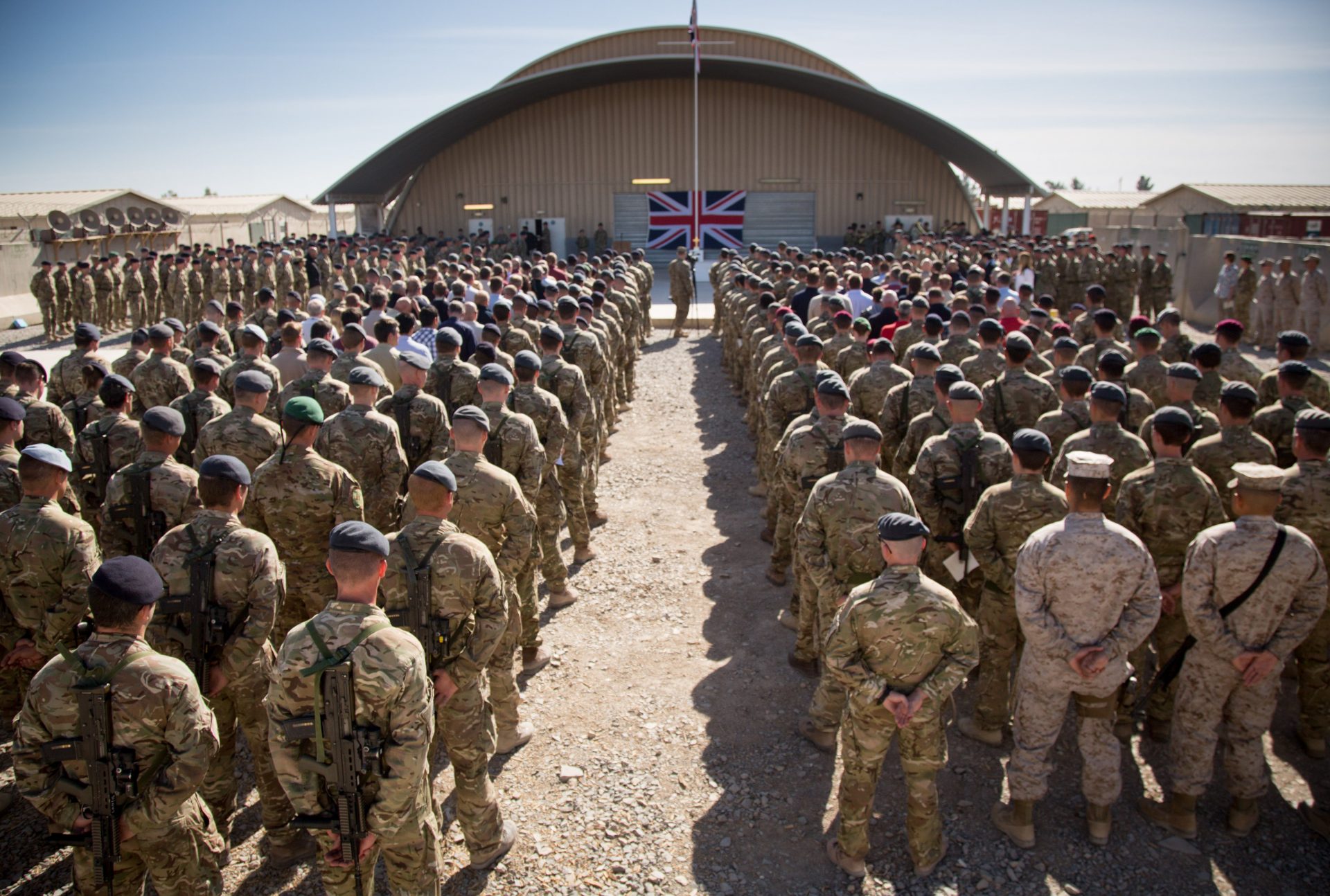It has been an odd experience finding myself constantly agreeing with Tory politicians as they flooded the airwaves with their views on the tragedy unfolding in Afghanistan. The trouble is that none of them are in the government and nor are they likely to be, given Boris Johnson’s determination to be surrounded by second-raters appointed because they are happy to repeat his Brexit lies, and/or because they are so useless they will never pose a threat.
Rory Stewart, ex-international development secretary, demanding greater action to address the growing humanitarian crisis – and my God, are we going to see exposed the folly of scrapping the Department for International Development?; Johnny Mercer, ex-soldier, ex-defence minister and still Tory MP, castigating the government for ‘surrender,’ for breaking promises made to the Afghan people, and for doing too little to help those Afghans who had helped our troops; Tom Tugendhat, ex-soldier and foreign affairs committee chairman, clearly ashamed at our humiliation and our betrayal of the Afghan people.
All three have forgotten more about Afghanistan than Boris Johnson and the near-Trappist foreign secretary Dominic Raab will ever trouble themselves to learn. Tugendhat served both in Iraq and Afghanistan. As a civilian, he worked for the Foreign Office in Afghanistan, helped create the National Security Council there, and the government in Helmand Province. Mercer did three tours of duty in Afghanistan. Stewart wrote a book about his walk across the country, and has stayed connected with it ever since.
The emotion in their faces and voices as they spoke was clearly a reflection of their experience and commitment – and for the two ex-soldiers doubtless soul-searching as to whether it had all been worth it – but also the conversations they had been having with people in Afghanistan.
As the Taliban took back control in a way that the Brextremists have never managed to do with their own pet project, all three could barely conceal their contempt for the lack of concern, the lack of urgency, the lack of any sense that the UK government was properly engaged, or felt any real sense of responsibility for what was happening, beyond the question of getting Brits out fast.
The fact the government had to be pressed into recalling Parliament spoke volumes about the indifference; it was blindingly obvious this was a crisis of huge significance, with major security and strategic ramifications, and not to recall would merely add to the sense of our simply turning our backs on Afghanistan.
Last Friday, Johnson ‘called a COBRA meeting,’ thus getting himself to the top of the news for an hour or two, which is where he likes to be, and then did a brief pooled TV clip, saying “there is no military solution.” As Tom Tugendhat pointed out two days later, there was a military solution, and the Taliban seized it. What Johnson did not do was give any sense of an understanding of the significance of what was happening, nor any desire to embrace the responsibilities falling upon the UK.
The UK is currently chair of the G7. Was there any urgent activity on that front? We are one of the five permanent members of the United Nations Security Council. One of the major players in NATO. As he delivered his pooled clip, Johnson looked like he was rather miffed to have had to work on a Friday evening, and put on a suit and tie rather than his favoured hard hat and yellow vest.
A similar pattern on the Sunday – Cobra meeting, rambling and dishevelled pooled clip, top line – “the West has to tell the Taliban nobody wants Afghanistan to become a breeding ground for terror again.” Well, guess what, some people do, and they just walked all over us.
Nothing on democracy, human rights, education, the safety of women, the things that had been fought for over 20 years. Nothing on the geostrategic fallout. Nothing on Pakistan, and its role. Nothing by way of message to the troops who served, and the families of the 457 British soldiers who died there.
It was an abdication of leadership and, writing this before Wednesday’s Parliamentary session, I won’t hold my breath that a longer speech will lead to much greater thought or action.
Of course the Americans, for the 20 years since the attacks of September 11 2001, have been the major overseas player there. It was the succession of decisions by four presidents, and Biden’s determination there should not be a fifth required to deal with this war, that brought us to where we were; notably the deal Trump did with the Taliban behind the back of the Afghan government to pull out US troops in exchange for safety, and Biden’s determination not to renege on it.
Bear in mind Biden has long been an Afghan sceptic, unpersuaded the Taliban could be defeated militarily, unconvinced the country would ever be anything other than a failed state bedevilled by warlords and corruption. He opposed the 30,000-troop surge of 2009/10, and pushed for ‘the Biden plan,’ a strategy of counter-terrorism, making greater use of special forces, modern surveillance and targeting, to attack the terrorist networks there.
Whether he was right or wrong then, it is his decision now which risks defining the early stages of his Presidency, and not in a good way.
But as Johnny Mercer pointed out, the UK, albeit not the power it once was, is nonetheless a power, and it was ‘shameful’ – his word – that the UK government failed properly to push back on the current Biden plan, or properly thought through the consequences; and shameful that we capitulated so quickly after twenty years of engagement, which has, for all the problems, led to periods of calm and stability, and major progress for women in particular.
It was also deeply disappointing, speaking as someone who rejoiced when Biden ousted Trump, to hear that at the recent NATO Summit, when ‘small’ countries complained that there was no strategy for helping those who had helped us, to quote one present, “the big countries rolled their eyes.”
It should surprise nobody that Johnson doesn’t care too much about his policies and decisions affecting people adversely. We have seen plenty of evidence of his indifference on that front at home, whether Brexit, Covid, or levelling up remaining a slogan without a plan.
I have been genuinely shocked though that Biden, a deeply empathetic man, can tolerate the consequences of the pull-out, or that secretary of state Anthony Blinken can claim the 20-year war to have been a success. It has ended in abject failure, the Afghans have been betrayed, and the consequences are going to be with us for years.
Meanwhile, we are force-fed Taliban claims that women will be respected, education for girls will remain, the media will be free. Tom Tugendhat’s face was a picture as this was put to him. “You cannot believe a word they say,” he said.
Sadly, the same can also be said about others closer to home. Remember that as foreign secretary, three years ago Johnson discovered an interest in Afghanistan only as a way to avoid a Commons vote on a third runway at Heathrow, the one on which he had promised to lie in front of bulldozers but instead chose just to lie about, as per. A day trip to Kabul, not because he cared about Afghanistan, but because he wanted to run away from another broken promise.
All a game, all about becoming prime minister. Now that he is there, the true awfulness gets more and more exposed and those who know him – like Stewart, Mercer and Tugendhat – know that where once Britain had prime ministers in Downing Street, now we have a moral vacuum.




